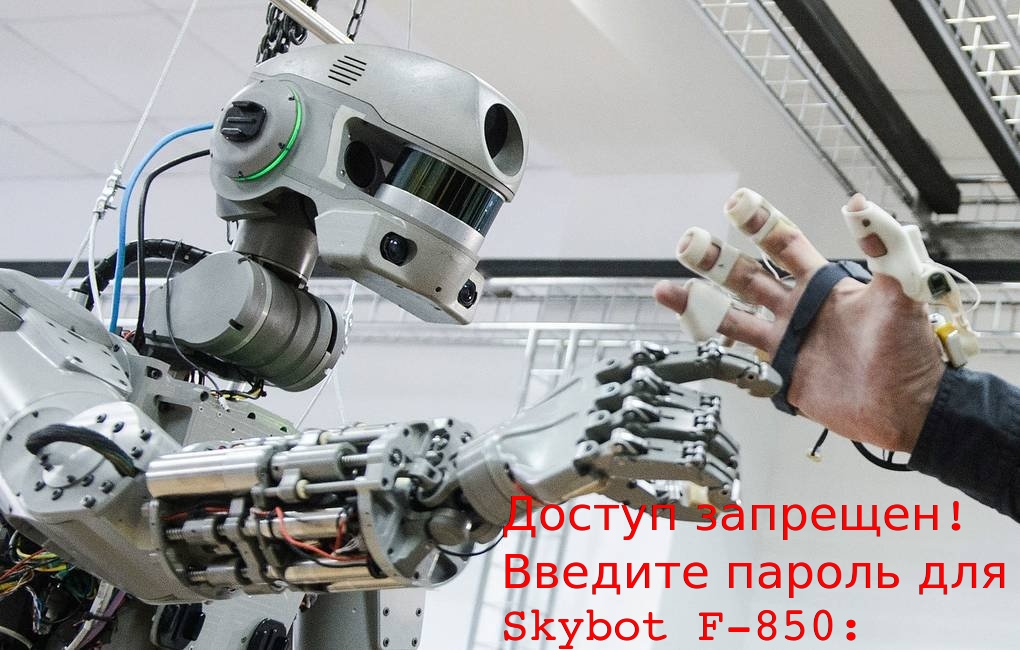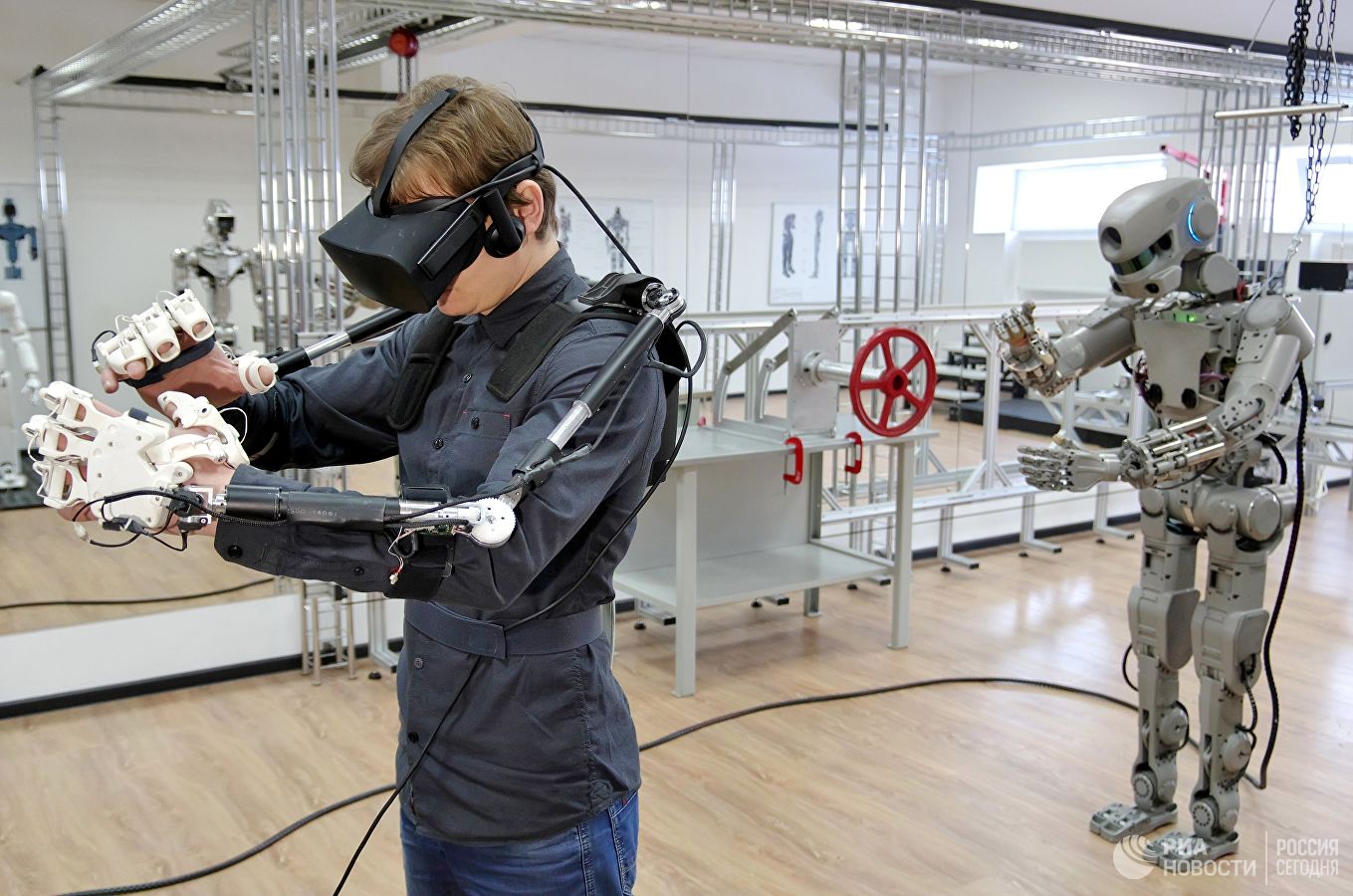Not the FEDOR, but the Skybot F-850 will fly to the ISS

- In a month, the FEDOR robot will fly to the ISS. What other tasks can he come up with there?
- And let's equip it with a voice assistant and rename it!
To continue these publications:
The Soyuz MS-14 hatch turned out to be narrow for the FEDOR robot.
How did the FEDOR robot and the ISS flight chair finish? FEDOR
robot - training with the new ISS crew and first space tasks
Brutal FEDOR robot (Fedor - F inal E xperimental D emonstration About bject the R eSearch) before his first flight into space got a new terrible name ... Skybot F-850.
The functionality of the Skybot F-850 has been expanded - they added the functions of a voice assistant so that he can conduct conversations with astronauts.
Preparation is also being conducted regarding its adaptation to the reproduction and perception of human speech. It is planned that in this way he will exchange data with crew members, "the RSC Energia press service said.
At the moment, the new anthropomorphic robot avatar Skybot F-850 and a set of its additional equipment are being held at the rocket and space corporation (RSC ) "Energy" pre-flight checks, including testing adaptation to the reproduction and perception of human speech.
Engineers of RSC Energia conducted:
- an assessment of the functioning of the Skybot F-850 robot systems;
- tested the remote control system of the robot: virtual reality glasses and an exoskeleton (control suit worn by the operator);
- verification of the robot’s basic operations that are planned to be carried out on board the International Space Station under the control of cosmonaut Alexander Skvortsov.

Previously, the astronauts of the new ISS crew have already worked for some time with the robot controls now Skybot F-850 and even some comments were given to engineers on its work.
On this earthly testing of the Skybot F-850 robot systems does not stop.
Preparations have begun for operations to load the Skybot F-850 robot into the prototype of the descent module of the Soyuz spacecraft (Ocean-5 simulator) and to unload from it, since after docking with the ISS this stage is very important to work out in advance and minimize possible problems related to the transfer of the non-standard Skybot F-850 robot construct from the Soyuz spacecraft to the Russian segment of the station.


Although it is not clear why the Ocean-5 simulator is used for this task, except in a stationary and fixed position in the hangar.
The Skybot F-850 robot is scheduled to fly on the ISS on August 22, 2019 on the Soyuz MS-14 unmanned vehicle and will return to Earth one and a half weeks after launch.
What else is known about the flight of the Skybot F-850 :
“He passed the tests on human-machine interaction at the Cosmonaut Training Center, then at RSC Energia. The time will come and we will show all these notes, it is very interesting, because these are very difficult skills for a person, especially in zero gravity conditions, because it is unclear how the car will behave there, ”Rogozin said.
During his stay on the ISS, the robot will be controlled by Skvortsov, then specialists from Earth will control it, and in the future it will be endowed with elements of artificial intelligence, since when mastering deep space it will be impossible to directly control the machine due to communication delays.
“In this regard, by the beginning of the lunar expeditions, it will be necessary for us to work out the elements of artificial intelligence so that the machine is self-learning and makes certain decisions on its own,” Rogozin said.
“We approach this topic with extreme caution. The main thing is that everything goes smoothly. In fact, this is the first experiment on board the station, it will be an emphasis in the work of Roscosmos in deep space, ”he said.
The primary task of using robots in space, he called carrying out dangerous work for humans, including the development of deep space.
“This should be a smart machine, given that in the future we plan, if we can successfully test, use similar machines to study distant planets and deep space,” Rogozin recalled.
He noted that Russian experts are the best in the issue of fine motor skills of anthropomorphic robots.
“Fine motor skills are extremely important in order to operate tools, including in zero gravity. The operator himself feels the touch of the robot on any item, this interface is so interesting, ”said the head of Roskosmos.
